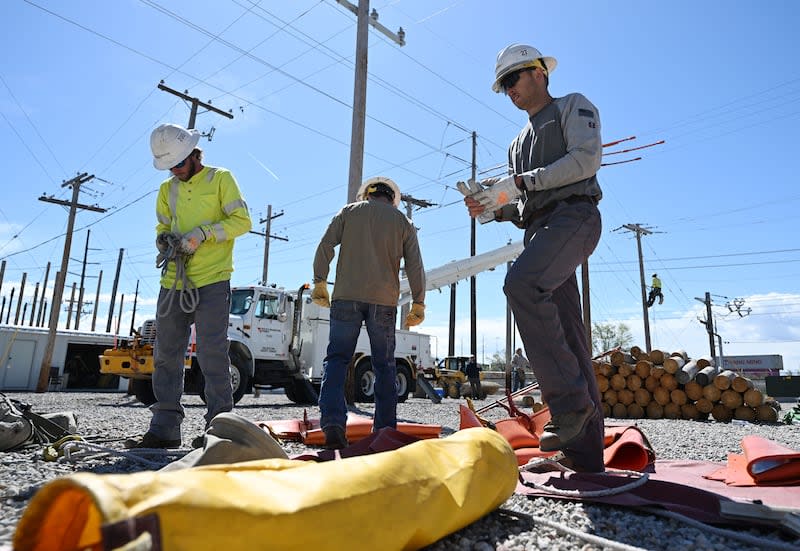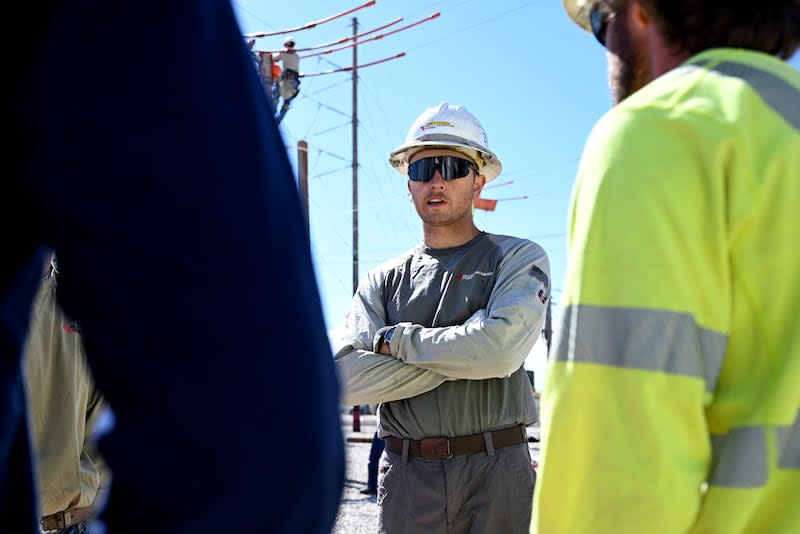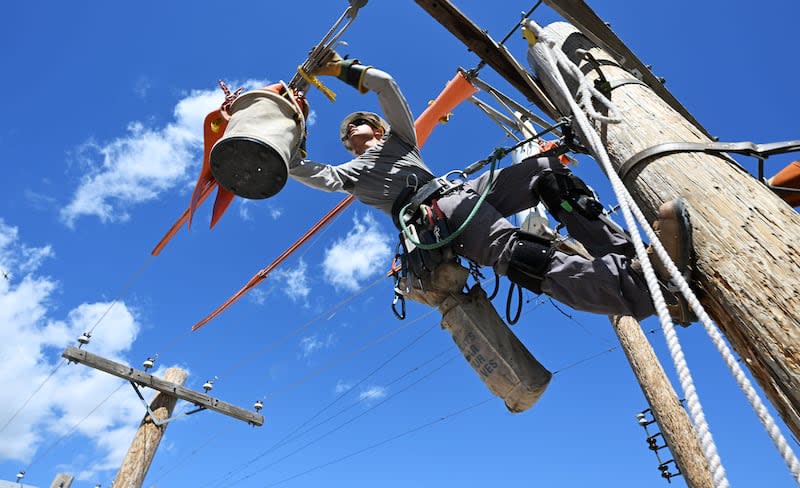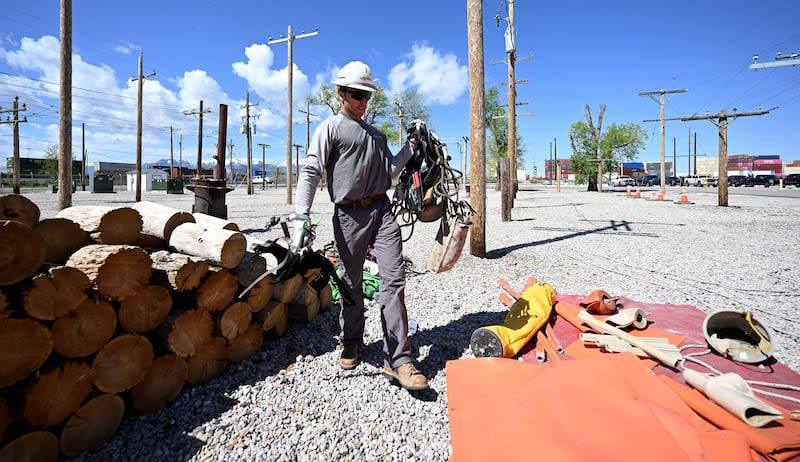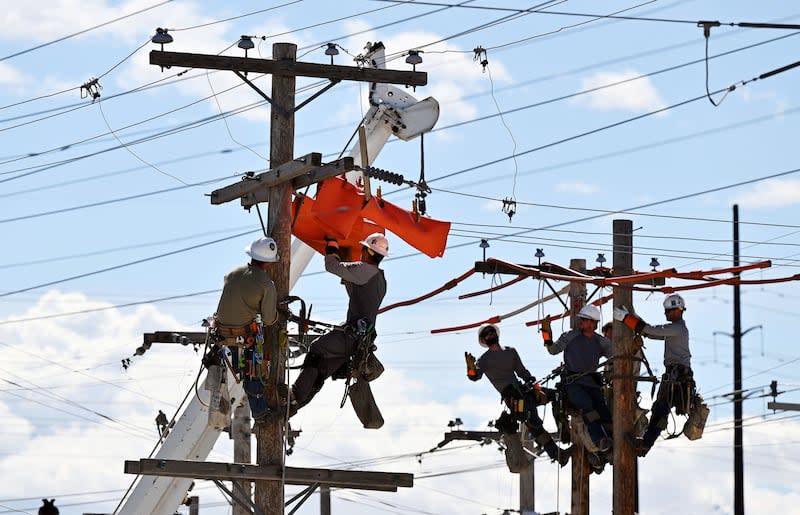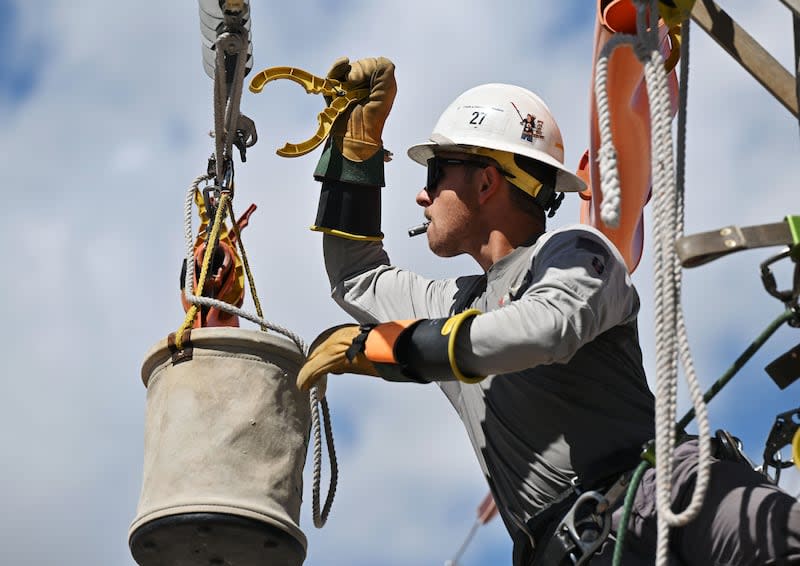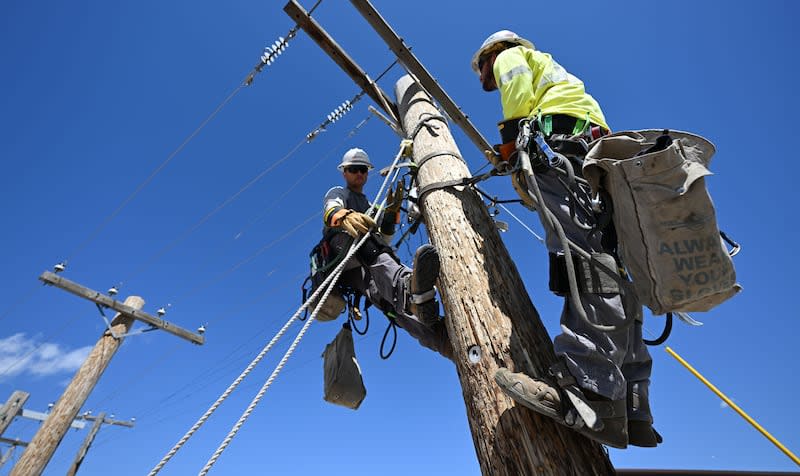Many Gen Zers are trading college for trade school
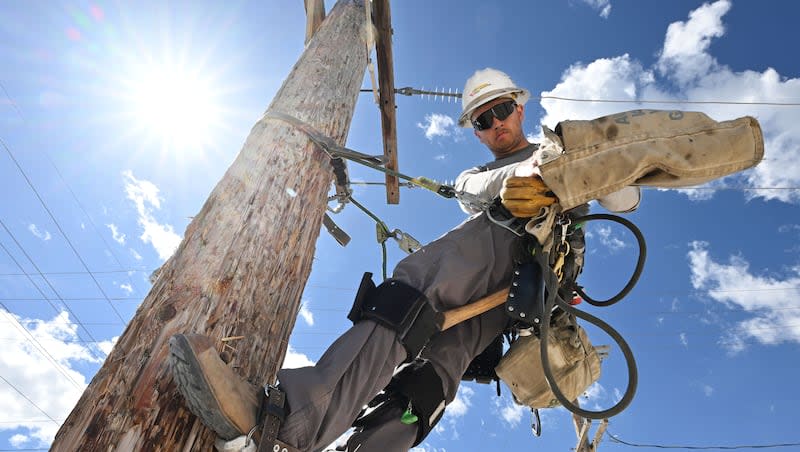
A lot has changed since Harvard College — the first university in the United States — was founded in 1636. No longer is secondary education primarily used to train clergymen for the church. Today, universities across the country promise various ways of thinking.
American college is one of the country’s most iconic experiences. College football games and Greek life have earned the post-high school years a place in movies and literature, portraying the experience many Americans go through. However, college is not for everyone — and the need for it may even be generational.
It’s a common belief that a college education is required for success and the ability to get jobs that pay well. As a result, there has been less focus on vocational trade education and blue-collar jobs in recent decades.
But, “we’re finally seeing a more than subtle change within our society,” Robb Sommerfeld, co-founder of the National Center for Craftsmanship, told Axios. “More and more students and their parents see alternatives (to college).”
As Generation Z is reaching adulthood, many are choosing trade school over university. “Gen Z appears to be weighing the higher cost of college and the guaranteed return on investment in the trades and thousands of young people are skipping college, well aware they are following a generation deep in student loan debt,” per NewsNation.
The variety in trade fields
Those who work in an office may worry about sitting for too long, getting “gamer neck” from gazing at a computer screen all day or being diagnosed with carpal tunnel syndrome. Those are not common concerns for employees in a trade field.
While people working in trade jobs may not be dealing with wrist pain from typing or strained eyes from staring at a screen, their jobs can be quite perilous. According to TapRooT, these are the top five most dangerous occupations:
Logging workers.
Fisherman.
Aircraft pilots and flight engineers.
Roofers.
Steelworkers.
Although dangerous, these professions also tend to have the happiest workers. “Agriculture, logging and forestry have the highest levels of self-reported happiness — and lowest levels of self-reported stress — of any major industry category,” per The Washington Post.
Dana Chandler, co-owner of Family Tree Forestry in South Carolina, told The Washington Post, “With all of those challenges that they face, I have never heard a logger say, ‘I’m going to get out of it. ... They say, ‘I wouldn’t want to do anything else.’”
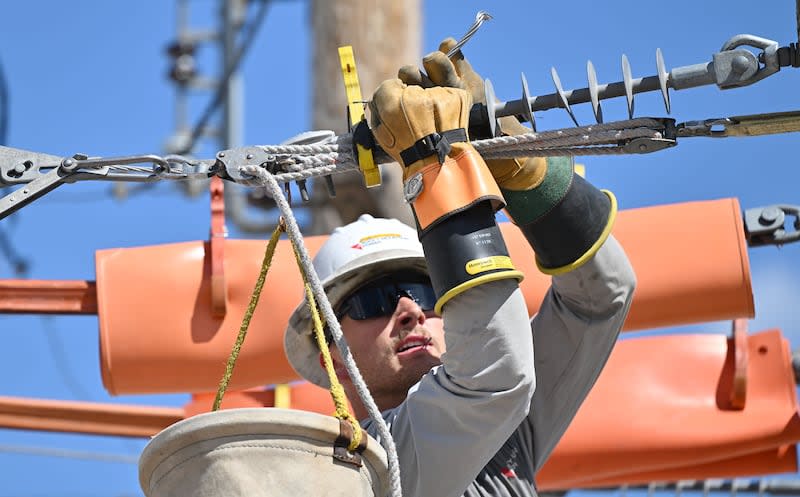
Investing in a career you enjoy
When Braden Grover, 24, was growing up, he said he looked up to a mentor in his church who worked as a troubleshooter for Rocky Mountain Power in Rigby, Idaho.
“One of my young men’s leaders was a lineman,” Grover said. “And he was always doing super well for himself. He has a big family. He’s got eight kids. And he always talked about it as just a fun line of work where you’re doing something different every day and get to learn cool things. And it’s not like mind-numbing work. You have to know what you’re doing so that you are safe about it.”
Lineman work can be needed 24 hours a day, seven days a week and 365 days a year — in all types of weather. Maintaining and repairing electrical power systems and telecommunications cables is crucial in their occupation. They work with live wires at dangerous heights.
“Forty-two for every 100,000 lineman are killed on the job each year. This makes lineman jobs one of the most dangerous only behind loggers and manual laborers in agriculture,” per Lineman Central. “Around 2,400 for every 100,000 lineman suffer serious non-fatal injuries each year. The most common of these serious injuries are electrical burns and broken bones from falls.”
Grover, who is currently finishing up his third and final year as an apprentice lineman for Rocky Mountain Power, said he’s never felt unsafe in his work and looks forward to his next phase — and pay raise — as a journeyman lineman.
“I did think about college. I was signed up to go to Montana State University. I had a couple of scholarships up there,” Grover told the Deseret News. But his ideas changed when he returned from his two-year church mission. “I started looking at different avenues just because I didn’t know what I wanted to study in college.”
The age gap in blue-collar jobs
Tyler Christensen, 23, decided against enrolling in college when it was time for him to make the life-changing decision. “I think the first thing I thought was that I didn’t really know what I would even want to go to college for,” Christensen told the Deseret News. “And I’m always thinking of jobs that will not lose their demand in the future; that way, I can always have a good living.”
“I think all trade fields fall under that category. They’ll be around forever,” he added. “You’ll always need plumbing for the rest of your life, and you’ll need electricity. Plus, it’s super easy to get into, and the schooling is very affordable compared to college.”
Currently an apprentice learning his trade as a plumber, Christensen said he enjoys the satisfaction he gets from his work. “I like working with my hands. I like finishing projects and looking at them happy, with the customer also happy. I’m just so satisfied afterward.”
The average age for a male plumber in the U.S. is currently 41, with an average yearly salary of $60,112, according to Blue Recruit. Realizing that there was a definite age gap between him and his mentors and not many in between, Christensen said that as the older generation retires, it’ll be the younger generation’s responsibility to ensure those needed fields are filled. “So that’s our generation’s turn to step in,” he added.
